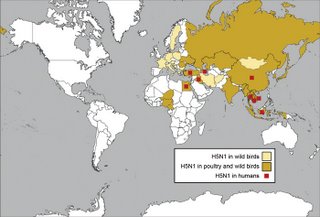 - Bucky
- Bucky I recently posted a blog on "What's up with Microsoft?". This blog talks about the delays of Vista and how that might be an opportunity for the Open Source Community as well as Apple. Historically there has been an "us" vs "them" mentality. Microsoft has been seen as the Big Bully, the Monopoly, or the Borg of the tech world. We love to hate em. Bill Gates is the tech nerd of the century. We all have a love hate relationship with this guy. Bill Gates and Company have pirated, lied, and made some incredible shrewd and awesome moves to get where they are today.
Here are just some of the victims that have tangled with Microsoft: Netscape, WordPerfect, Borland, Sony, Nintendo, Quicken, Seattle Computer Products, IBM, CA, RealAudio, Google, Digital Research, Apple, AOL, and of course the once great Novell - very bruised, beaten, but still on life support.
Not all these are victims, but they have all tangled with Microsoft. Microsoft pirated or practically stole DOS from a company called Seattle Computer Products for a measly $50,000 and turned right around and made the historic partnership with IBM.
IBM and Microsoft extended their partnership producing OS/2 while Microsoft secretly worked on their own version of Windows NT. In 1991 Gates severed the IBM partnership. "Thanks IBM - See ya!"
In 1995 in one of the smartest moves ever, Bill Gates moved the Microsoft behemoth into a quick about face, and embraced the Internet. MS started MSN and directly competed with CompuServe and AOL. MS then went after Netscape and the browser market and destroyed Netscape.
Steve Jobs and Apple vs Bill Gates and Microsoft have long had a love hate relationship. They have been both enemies and friends. “The trouble with Microsoft is they have no taste,” said Steve Jobs in a 1996 PBS documentary. “I don’t mean that in a small way, I mean that in a big way.”
In the 70's Apple ruled the new PC industry. But in the 80's Microsoft's decision to license the DOS OS to IBM, and later to IBM clones propelled Microsoft to the top position in the software industry. Apple accused MS in the late 80's of copying the look and feel of the GUI or Graphical User Interface that Apple held with the Macintosh, (which they stole from Xerox Research Parc). The courts ruled in favor of Microsoft.
Microsoft uses a slogan, "Embrace, extend, and extinguish". In the 90's Microsoft tried to embrace Novell and even had talks with Ray Noorda, then CEO of Novell, about merging. In the early 90's Novell held 80% of the market share of Network OS's. Ray Noorda lived in ethical mormonville Utah and saw through Gates tactics. I remember Ray telling us a story about how Microsoft was trying to get Gates and Noorda together to have a heart to heart talk, but Ray said that was impossible because Gates didn't have a heart.
Gates really couldn't embrace Novell so he tried to extinguish Novell. They pretty much succeeded because of 1- The Market Machine of MS. 2 - Mistakes made by Novell (Losing site of the core business and taking on MS with the merger of WordPerfect, Borland, and Novell). 3 - The engineering and speed of the OS became a mute point with faster chips and hardware and lower cost of hardware. 4 - NetWare is great at file and print, but lousy as an Application Server.
Now you know why we call Microsoft the Evil Empire. Beaten and bruised Novell just trying to survive needed to A - Rewrite NetWare from the ground up to be better application server, or B - Port Novell Services over to another platform. Novell is doing an excellent balancing act by going with choice B. They bought two Linux companies, Ximian and SUSE. Novell joined the Open Source community which is totally opposite from Closed Source Microsoft. Novell now needs to convince the die hard Novell NetWare customers to stay with Novell and embrace Linux and Open Source meanwhile staying with Novell Services such as GroupWise, eDirectory, Identity Management, and ZENWorks.
I personally think Novell is doing a good job. Microsoft keeps telling customers that Novell is dead. But watch Novell. They are still breathing and are starting to make waves. Is Novell relevant in today's IT buying decisions? It'll be interesting to watch this play out.



